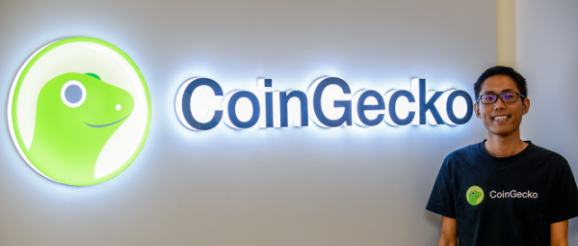Digerati50: Pursuing Permissionless Innovation

Digital News Asia (DNA) continues its series that profiles 50 influencers who are helping shape Malaysia’s Digital Economy, from Digerati50 2020-2021 (Vol 4), a special biennial print publication released in July 2020. The digital copy can be downloaded from the sidebar link.
Bobby Ong had just graduated from the University College of London in 2012 with a shiny new Economics degree, when he was suddenly faced with a case of cognitive dissonance.
“Three years in London, I didn’t hear about Bitcoin, my lecturers didn’t mention Bitcoin at all,” he said. Yet the buzz on the Internet was this outrageous new idea. “I was teaching myself how to code, I spending a lot of time on online tech forums,” he recalled. “A lot of these guys were talking about this new magic Internet money.”
He decided either the programmers and VCs in Silicon Valley were crazy and delusional; “Or my lecturers are obsolete.”
In an effort to close this gap in his understanding, he partnered with TM Lee to create CoinGecko, a website dedicated to presenting cryptocurrency-related data in the most transparent and usable way possible.
“Back in 2014 (cryptocurrency) websites were really badly designed,” recalled Bobby. “At the time the only way of people evaluated these cryptocurrencies were based on price and volume. Nothing else,” he pointed out. “What we wanted to do was to bring in various different data points from different places.”
CoinGecko now aggregates data to track price, volume, social and developer stats for over 3,500 token from over 250 exchanges. The company has US$ 3 million in annual revenue, and the founders are listed in the Forbes 30 under 30 list for Finance and VC.
The ethos of controlling your own money
In a bit of irony, Bobby says that his interest in what has been hailed as the latest incarnation of money, isn’t really about making money. “It’s all about the ethos of holding control of your own money,” he said.
“Cyprus (is) what made me question things,” said Bobby, referring to the 2012-13 Cypriot Financial Crisis. The country needed a bailout and considered a “one-time tax” on bank deposits, even though most of the bank’s customers had done nothing wrong and weren’t the reason for the crisis. “The fact that the government could have contemplated such a thing shattered any illusion,” recalled Bobby.
“You know the money that you have in the bank?”, asked Bobby, “It’s not really your money”.
In sharp contrast, cryptocurrency is the opposite. “If you hold Bitcoin, nobody can really take it away from you, or freeze it from you,” he enthused. “You control your own coins, your own wealth.”
Bobby is also excited what the lack of central control means for innovation. “Nobody has to give you permission to do anything,” he says “When there is permissionless innovation things move at a very rapid pace.”
Although established parties lag the innovators, they will go where they see value. Bobby agreed that some central banks, like in China, are now beginning to explore digital currencies, and that it’s still a matter of influence and control. “They can get all the benefits (of digital currencies),” he pointed out. “(but) also partly because anything that chips away at the dominance of the US dollar is good!”
Clear guidelines from the Securities Commission
Given his enthusiasm for a democratising control and permission, you would imagine he would consider the Malaysian Securities Commission’s (SC) recent regulation of digital asset exchanges to be a bit of the damper. But in fact, he welcomes it.
“Somebody needs to take accountability of regulating cryptocurrencies,” he said, referring to the number of shady fly-by-night schemes in the country beforehand. “I would say SC has done very well,” he noted. “They have put out regulations for exchanges that are very clear guidelines.”
“Before SC regulated them, there were twenty, thirty, forty players out there,” he said. “Now it’s just back to three guys and these guys are tightly regulated.”
He also agrees that the Malaysian public benefits from such regulations. “The level of financial literacy Malaysia is quite frankly it’s quite low,” he admitted. “They want to make money but they don’t want to take the time and effort to understand the risk or how this money generated.”
Digerati50 2020/2021 is proudly sponsored by Maxis – Powering Malaysia’s 5G era.
For information on customised reprints email
